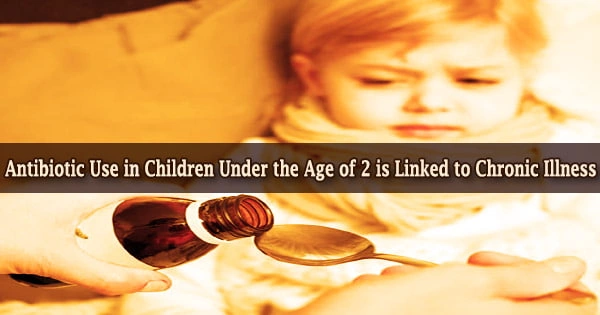According to an article co-authored by Mayo Clinic and Rutgers researchers, children under the age of two who use antibiotics are more likely to develop childhood asthma, respiratory allergies, eczema, celiac disease, obesity, and attention deficit hyperactivity disorder.
The researchers looked at 14,572 children born in Olmsted County, Minnesota, between 2003 and 2011, 70% of whom received at least one antibiotic prescription during their first two years, primarily for respiratory or ear infections, according to a study published in the journal Mayo Clinic Proceedings.
Childhood-onset asthma, allergic rhinitis, atopic dermatitis, celiac disease, overweight, obesity, and attention deficit hyperactivity disorder were all linked to early antibiotic exposure (hazard ratios ranging from 1.20 to 2.89; P<.05 for all).
The findings support the theory that the microbiome, the billions of beneficial microbes that reside in and on our bodies, plays a vital role in the development of immunity, metabolism, and behavior in children.
The amount, type, and timing of antibiotic exposure all influenced the results. Furthermore, children who were given multiple antibiotic prescriptions had a higher likelihood of having a combination of conditions.
The findings from Olmsted County provide evidence for broad and delayed effects of early life antibiotic exposures, and should change doctors’ practices in how often they prescribe antibiotics, especially for mild conditions.
Martin Blaser
“The evolution of drug-resistant bacteria exemplifies one unintended consequence of antibiotic overuse,” said co-author Martin Blaser, director of the Center for Advanced Biotechnology and Medicine at Rutgers.
“The increasing prevalence of health conditions that start in childhood has triggered concern about antibiotic exposures during key developmental periods because of their impact on the microbiome.”
While previous research has looked at the link between antibiotics and specific diseases, this is the first to look at the link across multiple diseases. Antibiotics were linked to metabolic diseases (obesity, being overweight), immunological diseases (asthma, food allergies, hay fever), and cognitive ailments or disorders (ADHD, autism) in the study, however, the effects differed by an antibiotic.
Cephalosporins were linked to the highest risk of a variety of disorders, including autism and food allergies. Researchers also discovered that the risk of infection rose with the number of antibiotic courses taken and when they were administered earlier in life, particularly during the first six months.
“The findings from Olmsted County provide evidence for broad and delayed effects of early life antibiotic exposures, and should change doctors’ practices in how often they prescribe antibiotics, especially for mild conditions,” said Blaser.
The current study discovered significant links between early-life antibiotic exposure and a variety of childhood-onset health conditions. More study is needed to provide practical guidelines for maximizing the benefits of antibiotics while minimizing the risks in children.





